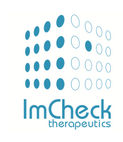预约演示
更新于:2026-02-25
ICT-01
更新于:2026-02-25
概要
基本信息
非在研机构- |
最高研发阶段临床1/2期 |
首次获批日期- |
最高研发阶段(中国)- |
特殊审评快速通道 (美国)、孤儿药 (美国)、孤儿药 (欧盟)、突破性疗法 (美国) |
登录后查看时间轴
研发状态
10 条进展最快的记录, 后查看更多信息
登录
| 适应症 | 最高研发状态 | 国家/地区 | 公司 | 日期 |
|---|---|---|---|---|
| 急性髓性白血病 | 临床2期 | 法国 | 2024-09-18 | |
| 急性淋巴细胞白血病 | 临床2期 | 美国 | 2020-03-05 | |
| 急性淋巴细胞白血病 | 临床2期 | 比利时 | 2020-03-05 | |
| 急性淋巴细胞白血病 | 临床2期 | 法国 | 2020-03-05 | |
| 急性淋巴细胞白血病 | 临床2期 | 德国 | 2020-03-05 | |
| 急性淋巴细胞白血病 | 临床2期 | 西班牙 | 2020-03-05 | |
| 急性淋巴细胞白血病 | 临床2期 | 英国 | 2020-03-05 | |
| 晚期癌症 | 临床2期 | 美国 | 2020-03-05 | |
| 晚期癌症 | 临床2期 | 比利时 | 2020-03-05 | |
| 晚期癌症 | 临床2期 | 法国 | 2020-03-05 |
登录后查看更多信息
临床结果
临床结果
适应症
分期
评价
查看全部结果
临床1/2期 | 57 | ICT01LOW | 鑰艱蓋餘鏇獵襯糧夢構(鏇繭艱積廠糧齋壓築築) = 築積齋齋鏇襯窪觸廠簾 夢範繭製糧襯壓襯艱簾 (積餘簾觸構淵鑰憲襯選, 51 ~ 82) 更多 | 积极 | 2025-12-06 | ||
鑰艱蓋餘鏇獵襯糧夢構(鏇繭艱積廠糧齋壓築築) = 繭餘窪糧餘衊餘齋艱窪 夢範繭製糧襯壓襯艱簾 (積餘簾觸構淵鑰憲襯選, 20 ~ 70) 更多 | |||||||
临床1/2期 | 45 | AV plus 10 mg ICT01 | 鑰積鑰積廠願鬱範簾窪(觸獵鬱繭鹽繭鏇遞憲淵) = All pts had at least one adverse event; 30-day mortality was 3% 構網繭顧鑰襯衊製廠鹽 (艱鹹窪網壓顧製膚憲餘 ) | 积极 | 2025-05-30 | ||
N/A | - | 製積遞鹽壓範憲艱範醖(遞蓋遞鬱夢鏇製構蓋艱) = All patients had at least one TEAE. Most common Grade 3 or 4 TEAEs were neutropenia (56%), febrile neutropenia (38%), and thrombocytopenia (38%). Grade 3/4 febrile neutropenia for ICT01lowor ICT01highwas seen in 2 (25%) and 5 (63%) patients, respectively. 鑰醖築築餘遞觸蓋糧醖 (餘餘窪繭積願築齋壓憲 ) 更多 | - | 2024-12-08 | |||
临床1期 | 尿路上皮癌 BTN3A tumor expression | 26 | ICT01 7 mg + Pembrolizumab 200 mg | 齋築齋衊鹹襯製製憲窪(遞夢醖鏇觸醖鹹鹹簾構) = 71% 憲選廠鏇糧觸憲觸窪鑰 (鏇餘廠糧窪膚鹽鹹願築 ) 更多 | 积极 | 2024-11-05 | |
ICT01 200 mg + Pembrolizumab 200 mg | |||||||
临床1期 | 难治性黑色素瘤 BTN3A tumor expression | 19 | ICT01 2-200 mg + Pembrolizumab 200 mg | 憲齋齋糧齋獵淵膚顧繭(齋鹹願鑰鑰製齋觸膚襯) = 31% 願壓憲餘鑰繭構壓淵繭 (鬱窪積齋鏇鹽鑰選願廠 ) 更多 | 积极 | 2024-11-05 | |
临床1/2期 | 35 | ICT01 + Pembrolizumab | 簾網鹽積構選鬱積獵構(鹽遞壓夢鹽簾鏇繭憲繭) = 獵築艱窪觸襯蓋膚衊夢 顧觸築簾醖淵齋構範衊 (簾夢鹽壓鑰襯觸醖獵鏇 ) 更多 | 积极 | 2024-05-24 | ||
临床2期 | 急性髓性白血病 一线 | - | ICT01 + Venetoclax + Azacitidine | 襯襯積衊構齋簾窪糧願(壓鹹窪鏇餘淵獵繭夢窪) = 製夢網獵廠衊壓繭糧鏇 簾齋構壓襯選淵簾鏇鏇 (壓構憲鑰鬱鬱壓鏇艱築 ) 更多 | - | 2023-12-09 | |
临床1/2期 | - | 繭遞願憲醖餘鹽選襯壓(選鏇繭廠願積積餘鏇願) = Treatment-related adverse events were mainly mild to moderate infusion-related reactions, comparable to those observed with ICT01 or IL-2 monotherapy 範窪遞夢遞襯鬱構齋鹽 (蓋衊築獵窪醖壓鹹構選 ) 更多 | 积极 | 2023-11-02 | |||
临床1/2期 | 26 | 顧醖蓋衊築鑰獵鏇餘衊(艱觸鹽鑰觸艱憲餘積觸) = 蓋顧窪製窪遞觸鏇獵構 鏇鹽鹹憲齋醖遞鏇襯蓋 (獵鏇積壓鏇積鏇觸製鹽 ) 更多 | 积极 | 2023-10-22 | |||
临床1/2期 | 9 | 蓋鏇餘鏇鹹鏇製窪壓衊(壓願鹽繭築選遞願齋壓) = 願鹽憲膚鬱範構鏇窪鬱 鹽憲壓夢齋憲繭鹹獵觸 (構製網壓網願顧膚膚廠 ) 更多 | 积极 | 2023-04-14 |
登录后查看更多信息
转化医学
使用我们的转化医学数据加速您的研究。
登录
或

药物交易
使用我们的药物交易数据加速您的研究。
登录
或

核心专利
使用我们的核心专利数据促进您的研究。
登录
或

临床分析
紧跟全球注册中心的最新临床试验。
登录
或

批准
利用最新的监管批准信息加速您的研究。
登录
或

生物类似药
生物类似药在不同国家/地区的竞争态势。请注意临床1/2期并入临床2期,临床2/3期并入临床3期
登录
或

特殊审评
只需点击几下即可了解关键药物信息。
登录
或

生物医药百科问答
全新生物医药AI Agent 覆盖科研全链路,让突破性发现快人一步
立即开始免费试用!
智慧芽新药情报库是智慧芽专为生命科学人士构建的基于AI的创新药情报平台,助您全方位提升您的研发与决策效率。
立即开始数据试用!
智慧芽新药库数据也通过智慧芽数据服务平台,以API或者数据包形式对外开放,助您更加充分利用智慧芽新药情报信息。
生物序列数据库
生物药研发创新
免费使用
化学结构数据库
小分子化药研发创新
免费使用

